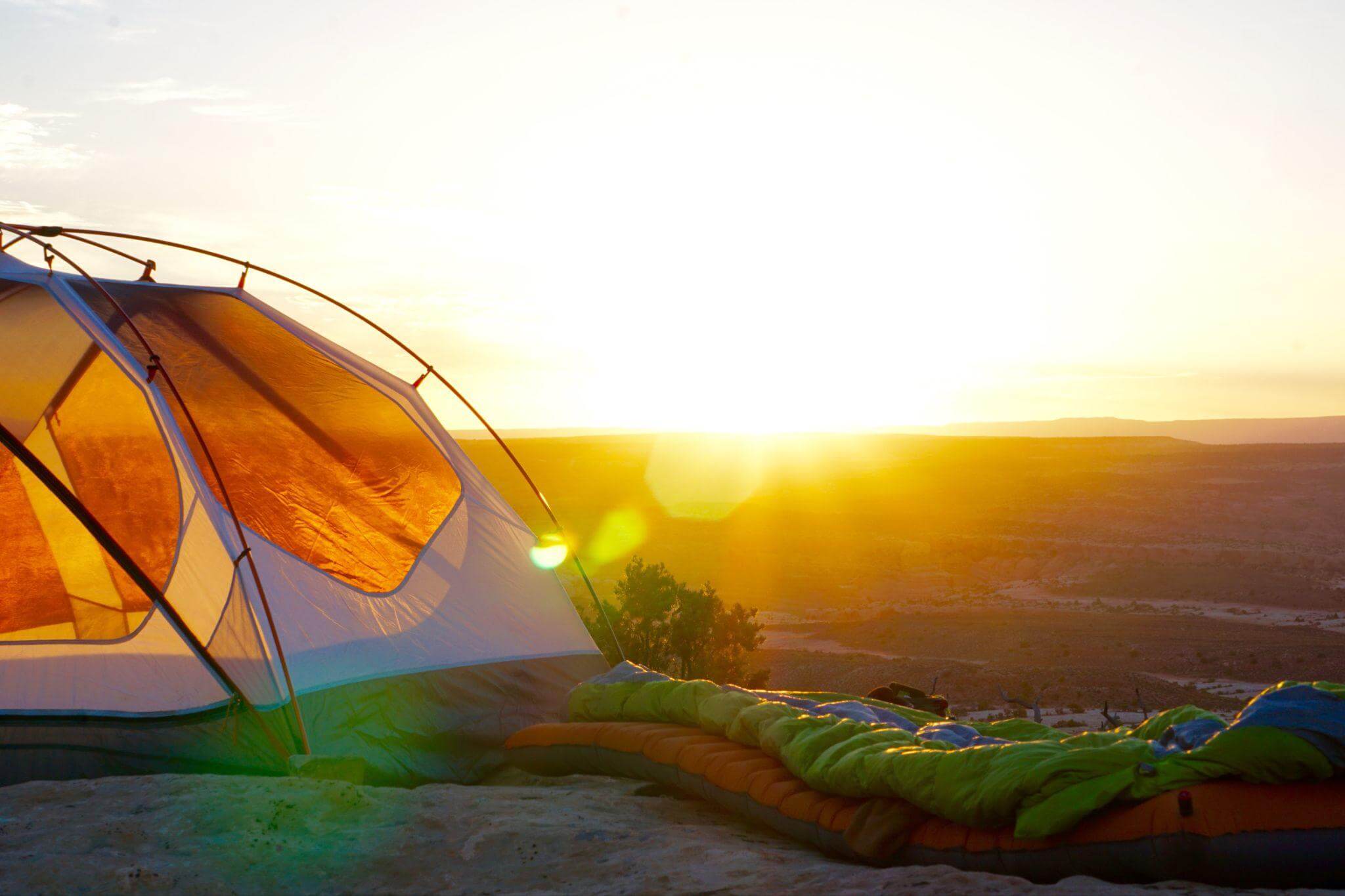It’s important to maintain a healthy sleep cycle while camping, even though it can be difficult.
The best way to do this is by creating an environment that will help you relax and prepare for bedtime.
Make sure your sleeping area is comfortable, dark, and quiet; bring along items like eye masks or ear plugs if necessary.
Getting enough sleep is important for physical, mental, and emotional health.
Sleep helps the body repair itself from the day’s activities, boosts energy levels and concentration, and supports emotional well-being as is evident on more attention on data of sleep.
With this in mind let’s have a look at our tips.
Creating A Comfortable Sleeping Environment
Creating a comfortable sleeping environment is essential for getting a good night’s sleep on a camping trip.
First, make sure your sleeping area is dark and quiet – if necessary bring along items such as an eye mask or ear plugs to block out any potential distractions.
Try to use screens (phones, laptops, etc.) in the evening as little as possible, if at all. The light from screens can disrupt your sleep cycle, making it harder to fall asleep quickly.
Try to avoid eating late in the evening so that you have time for your body to digest before bedtime. Finally, make sure your sleeping bag or mattress is comfortable and warm enough for a good night’s sleep.
Avoiding Screens In The Evening
It is important to avoid screens in the evening prior to going to sleep, as they can disrupt your natural sleep cycle.
Screens release blue light which tricks our brains into thinking it is daytime and suppresses melatonin production; this makes it much harder to fall asleep quickly.
The stimulation from engaging with media on phones or laptops can have a negative impact on the quality of your sleep.
If you need to use any electronic devices, try to limit it to the morning or early afternoon and avoid using them for at least an hour before bedtime.
And, if possible, put your phone away in another room or power it down completely during the evening so that you are not tempted to use it.
By avoiding screens in the evenings, you can ensure that your sleep cycle remains healthy and uninterrupted on a camping trip.
Establishing A Bedtime Routine
Establishing a consistent bedtime routine is key to maintaining a healthy sleep cycle while camping.
This means going to bed and waking up at the same time each day, no matter what.
Start by making sure you get out of your sleeping bag when the sun rises to begin a new day and stick to that schedule as much as possible.
Try to keep yourself busy during the daylight hours with activities such as fishing or hiking so that you are physically and mentally tired when it comes time for bed.
Finally, try to relax before going to sleep by meditating or reading a book. This will help you wind down and prepare your body for restful slumber throughout the night.
Not Eating Late At Night
Eating late at night can impede your ability to get a good night’s sleep when camping.
Eating close to bedtime can cause digestive problems, disrupt your natural sleep cycle, and make it harder for you to fall asleep quickly.
Eating late in the evening can lead to excess energy which will make it difficult for your body to relax and prepare for sleep.
To ensure a restful sleep, try to avoid eating within two hours before bedtime on your camping trip.
Instead of late-night snacks, opt for lighter pre-bed snacks such as herbal tea or yogurt so that you can stay energized without feeling overstuffed before going to bed.
With these tips in mind, you’ll ensure yourself of a good night’s rest on any camping trip!
Setting Up Camp Early In The Day
Setting up camp early in the day is an important factor when it comes to getting a good night’s sleep.
If possible, try to set up camp by mid-afternoon so that you have plenty of time to relax and get comfortable before it gets dark.
This will also give you extra time to take a short nap if needed, as the daylight hours are when your body’s natural energy levels are highest.
If you set up camp in the morning or early afternoon, you will have more time to explore the area around your campsite and engage in activities such as fishing, hiking, or swimming.
With more time to explore the area and get your body moving during the day, you will be able to enjoy a restful sleep at night on your camping trip.
Ensuring Comfort And Warmth
Finally, make sure that your sleeping bag or mattress is comfortable and warm so that you can drift off to sleep quickly and stay asleep throughout the night.
Invest in a quality sleeping bag or mattress that is made for camping, as this will provide much more insulation than regular bedding.
Bring along extra blankets or pillows if needed so that you are able to customize your bedding to ensure maximum comfort and warmth.
By setting up a comfortable sleeping area, you can ensure yourself of a good night’s rest while camping.
Final Remarks
Camping is a great way to get away from it all and experience the outdoors, but getting enough sleep can be difficult.
Fortunately, by following these tips on how to maintain your natural sleep cycle while camping such as avoiding screens in the evenings, establishing a bedtime routine, not eating late at night, setting up camp early in the day and ensuring comfort and warmth of your sleeping area you will ensure yourself of restful slumber throughout your trip.
Maintaining your sleep healthy is important in any occassion and doubly so while camping.
With these strategies in mind, you’ll be able to wake up feeling refreshed each morning during your camping adventure!

